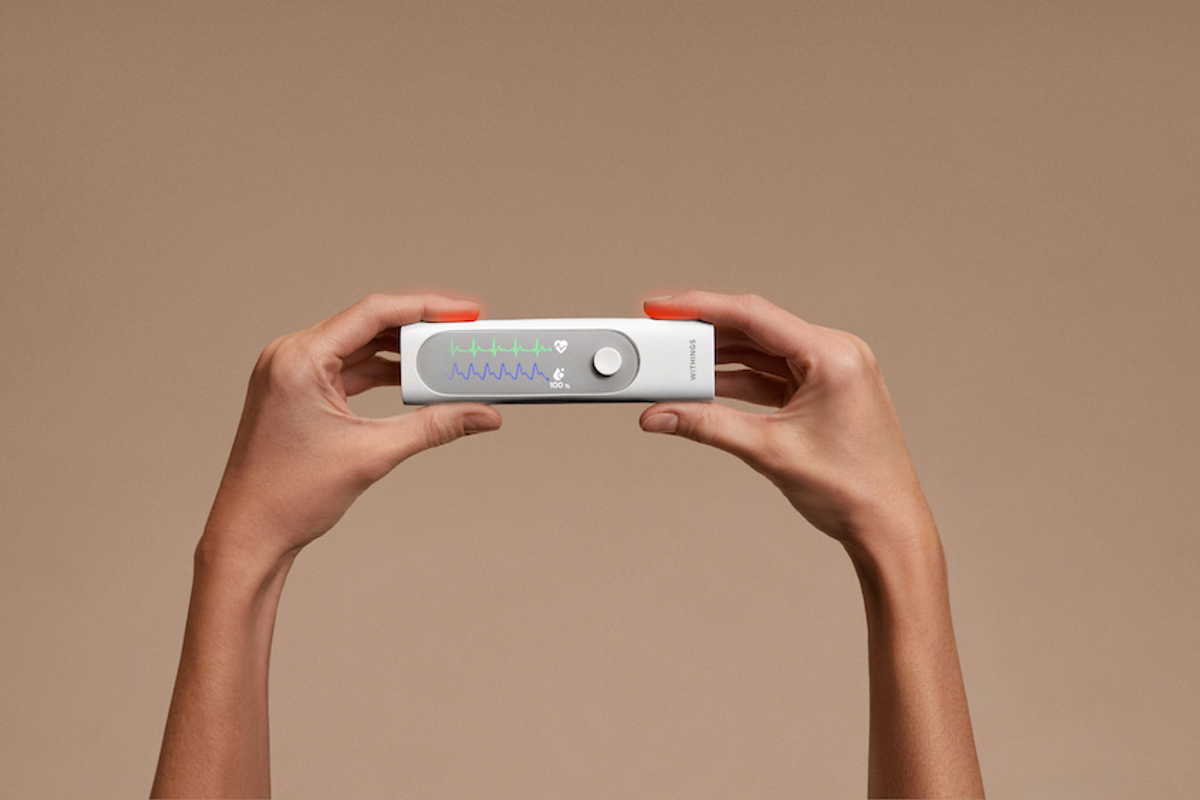Health Devices

Withings
HealthTech Revolution: Wearables, AI, and the Personalized Future of Healthcare
Empowering Your Well-being: The Rise of Smart Wearables and AI in Medicine

Empowering Your Well-being: The Rise of Smart Wearables and AI in Medicine
Is anyone up for the personalized future of healthcare? Well, it's coming. In fact, there have been glimpses of it over the past few years.
Wearables powered by the IoT (Internet of Things), comprehensive health data through electronic health records (EHRs), cloud technologies, artificial intelligence, and other advancements drive personalized patient experiences like never before.
Let's examine how these technology trends can improve health outcomes and accelerate personalized medicine in the near future.

The future of personalized healthcare is pretty much what the name says. Technologies will soon become more accessible to help healthcare providers create personalized experiences for each patient. The future of healthcare personalization will require the following:
Once healthcare organizations master each of these pillars, they can create more personalized treatment plans, drive better clinical decisions, and ultimately, improve patient care. Henry Meds is an example of a company that uses both wearables and AI to offer a comprehensive solution for chronic pain management.
The company provides a smart patch to measure pain intensity, location, frequency, and duration. The patch also connects to a mobile app that uses AI to generate customized pain relief plans based on the user’s preferences, goals, and medical history. Henry Meds aims to help people with chronic pain live better by empowering them with data-driven tools to optimize their treatment outcomes.

Moreover, human patients aren't the only ones to benefit from precision medicine. Pet owners who want to provide the best care for their furry companions can benefit from pet insurance for multiple pets. This coverage can cover the costs of veterinary visits, preventive care, and even emergency treatments.
Smart devices such as collars, trackers, and cameras allow pet owners to monitor their pets’ activity, location, and behavior and receive alerts and recommendations from AI-powered platforms. These technologies can help pet owners detect health issues early, prevent chronic diseases, and enhance their pets' quality of life.
Total spending on precision medicine is projected to increase to about $124 billion by 2027. Rapidly advancing technologies are likely to account for this increase. For example, according to Deloitte, technologies like generative AI can be used to create personalized health information, help diagnose symptoms, or recommend clinicians.
Here's a look at some of the biggest tech trends transforming patients' lives.
iStock
Telemedicine and virtual appointments
Telemedicine is one healthcare trend that will transform the way patients see healthcare.
Not only do virtual appointments provide patients with a convenient way to get care, but they also help foster personalized patient experiences.
For example, telemedicine technology allows patients to easily enter their health data, such as their medical and family history.
Remote data sharing across providers, insurance, and pharmacies lets healthcare providers personalize treatment plans.





Several technologies are revolutionizing the patient experience, from wearables to healthcare data integration. Medical practices can use these tools to deliver quality care, provide personalized treatment plans, and improve the overall patient experience. As patient personalization becomes increasingly important, these technologies will continue to evolve and change the game. Soon, they'll be a must-have for all healthcare organizations.
GearBrain Compatibility Find Engine
A pioneering recommendation platform where you can research,
discover, buy, and learn how to connect and optimize smart devices.
Join our community! Ask and answer questions about smart devices and save yours in My Gear.
